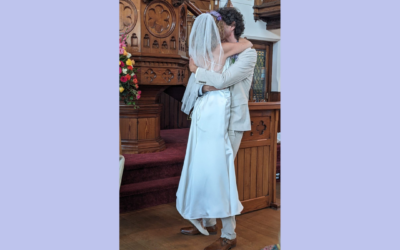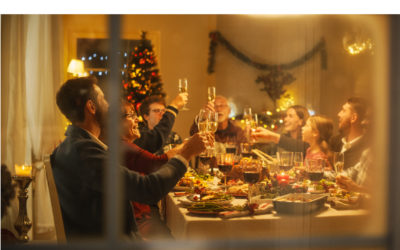What do you think of when you hear the word vulnerability? In my younger years, I thought of it as weakness; and definitely something I should try hard to avoid. These days I am much more inclined to see my natural human vulnerability as a beautiful aspect of who I am, and my ability to embrace it as a great strength.
The Collins English Dictionary defines vulnerability as: “capable of being physically or emotionally wounded or hurt”
It’s not surprising, given this definition, that I didn’t want to be vulnerable. Why would I want let myself get wounded and hurt? But this definition says nothing of the value in embracing our human vulnerability, or the consequences of denying it.
It is a natural part of the human condition to be vulnerable. Our physical bodies are vulnerable; it is a normal part of life to become sick and injured, and of course the inevitability of death is the ultimate vulnerability. And human beings are emotional beings, some emotions feel good to us and others are painful, so we are naturally vulnerable to emotional pain.
We can reduce our physical vulnerability by making healthy choices – eating well, keeping fit, staying out of harm’s way – by avoiding things that are not good for our body. So the idea of doing whatever we can to avoid our emotional vulnerability might at first glance seem to have a sound logic to it. But in my experience (along with many others – see research on vulnerability by Brené Brown,) it just does not work.
My strategy for avoiding my own vulnerability was to deny the parts of me that felt it. When I looked in the mirror, I was willing to see the confident, happy parts of myself, but much less willing to acknowledge and accept the parts that felt scared and not good/beautiful/loveable/whatever enough. I saw those parts as flaws and weaknesses in an otherwise mostly acceptable me. So I reinforced myself with affirmations of how good and beautiful I was (and felt) and showed the world my confidence, cleverness and carefreeness – which were real parts of me, but not the whole picture. I was very good at hiding my vulnerability, even from myself, so those parts were rarely met; they did not receive love and connection. The longer I lived like this, the more lonely and distant from myself I became. I was loved by those around me, but the love couldn’t sink in deeply enough to reach the parts that I had left out in the cold – because I considered them not even worthy of existing. It was only when I reached a point of hopelessness and exhaustion from trying to hold together this edited version of myself that I finally broke open. I admitted to myself, and supportive others around me, that there were parts of me that felt deeply insecure and scared, and that I was trying hard to be liked and loved by everyone, just to feel OK – and it wasn’t working.
At first this was terrifying. I dropped the masks of confidence that I had long hidden behind, and let my friends see me. I faced them eye-to-eye, without the strategies that I believed kept me “safe” from being rejected. I allowed myself to feel my fear. I was terrified, but I also felt love pouring into the parts of me I had disconnected from in my attempt to be “perfect”. Rather than finding myself rejected by others, many people expressed their appreciation of being able to see, and love, more of me. I began to realize that these parts of me are loveable, so I was free to just be myself, as I am. And it was OK to feel not good enough, it didn’t mean it was true. I no longer felt such a strong need to “protect” myself by denying how I sometimes felt. I even began to feel more of my beauty as I let more of my whole self be felt and seen. Embracing my vulnerability was, and will always be, the only way I could experience true, deep, loving connection with myself and others. For me, this is what is at the heart of vulnerability.
There is vulnerability in writing this, and letting it be seen. But my courage and passion to be fully who I am and allow myself to be seen is far more powerful than the fear that wants me to hide. Today, at least.
Nicola Williams, 2011
More blogs
What’s Self-Love Got To Do With It? My Wedding at Age 47
I recently got married to someone wonderful, who is consistently available, loving and deeply kind (who happens to be quite a bit taller than me as you can tell by my feet!), which still feels like something of a miracle to me - because I can honestly say that there...
What’s Self-Love Got To Do With It? My Wedding at Age 47
I recently got married to someone wonderful, who is consistently available, loving and deeply kind (who happens to be quite a bit taller than me as you can tell by my feet!), which still feels like something of a miracle to me - because I can honestly say that there...
Relationships and Self-Care at Christmas and Holiday Time
The Christmas and holiday period can powerfully magnify both the joys and the challenges of life, and our relationships. The joys can be wonderful - getting together with those we love, celebration, fun, gifts, spiritual communion, a break from the usual day-to-day,...
I've always wanted to make the lifelong commitment of partnership in marriage, and it's been a very long journey for me to get to my wedding day at age 47. I spent a lot of my adult life in painful patterns when it came to romantic relationship, which included being attracted to those who weren't really available, and not able, for their own reasons - and I say this without any blame - to meet and love me in all the ways I wanted to be met and loved. And I wasn't willing to settle for a relationship that wasn't truly right for me.
It has taken a lot of determination, courage and persistence to overcome and heal the obstacles within me that got in the way of experiencing the relationship I wanted, and indeed to become the kind partner that I would myself want to commit to.
I could write a whole book about the process (maybe one day I will), but for now I'll just say that the most important aspect of it has been (and always will be) my commitment to Love in my primary relationship - my relationship with myself.
Love with a capital "L" is unconditional - it can't be fallen out of. So even when I fall out of "like" with myself, it's always in the greater context of my commitment to loving myself, which means I always come back to the recognition that I am unconditionally loveable and worthy of love.
We all know that Self-Love can be a real challenge. It requires commitment to doing what it takes to have a truly healthy relationship with ourselves - an ongoing deepening of self-awareness, attunement and kind responsiveness to our needs and feelings, being open to seeing things about ourselves that are hard to look at and own, and learning to embrace parts of us that we feel the impulse to push away and disconnect from.
But it is so incredibly worth it - and the alternative certainly isn't a recipe for happiness - because self-love, or the lack of it, sets the tone - and determines the quality - of all of our relationships. Whilst I'm loving and embracing myself, I can't not be loving my husband... I can't not be loving everyone (which definitely includes setting healthy boundaries, and sometimes walking away, of course).
Even when I don't like parts of them. Even when there's conflict and it's painful. My commitment to Love guides me back home to my deepest self and invites me to do the work I need to do to meet the other with Love - whether it's learning to communicate more clearly and kindly, listening openly to feedback, or soothing and holding the vulnerable parts of myself more fully and compassionately when there's reactivity in our relating, to name a few examples.
Whether I'm coaching an individual or a couple around their relationships, I see that the most important part of my job is to keep inviting folk back to their relationship with themselves. That's always what needs kind and loving tending to first, whatever is happening in their relationships with others.
Which is why I'm so passionate about supporting people with self-love, and with making it practical - so it's more than just an idea, or yet another thing to have to achieve or "get right".
If you’re interested in finding out more about the coaching and workshops I offer, please do get in touch at info@nicola-madden.com
Ps. I am definitely not saying "you have to love yourself before anyone else can love you". This is a very unhelpful idea! And is simply not true.



